- Friday, 9 May 2025
Tri-lingual Epic On Halesi Mahadev
Mahadev is the god of gods in the Vedic religion. This supreme position has not been bestowed upon the god just for appeasement. The rare qualities Mahadev showed to save the cosmic existence and civilisation in times of crisis and the supreme magnanimity he offered to his devotees are all time instances, which puts him in the position of Mahadev.
In fact, the knowledge domain of spiritualism is filled with Shiva Mahima, and devotees find solace in it. There are many sastras and slokas, puranas, mythologies, stories, and instances of faiths and traditions. But in traditions, we can even find many practices of communities, and these things keep evolving and reforming, too.
The main thing to talk about here is the book entitled Halesi (Pilgrimage Epic) by poet Radheshyam Bhattarai. The poet’s biographical note on the back page mentions that he already had a few religious publications to his credit. This under-reviewed poetic work, too, holds merit in terms of religious and literary themes.
The Halesi Mahadev pilgrimage is situated in Khotang District, the district where the poet was born. In this regard, this epic is one of his most loved and respected literary works. The lines of poems, words, and rhythmic balance he has maintained to decorate his sentiments in it themselves speak much about how devotionally the poet was engaged to compose poems in it.
The influencing sweetness of this epic is acknowledged even by Rastrakavi Madhav Ghimire. The words from him are: ‘It (the epic Halesi) makes you feel the Halesi Darshan even by reading.’
The other comment worthy of mention about the book is by Pasang Goparma. Goparma highlights the fact that the sacred Halesi shrine nurtures the values of both Hindu and Buddhist traditions. The importance of this book in this regard is that both the Hindu and Bouddha traditions have been mentioned through the medium of sweet poems.
However, this time the book has come out with other features, too. In fact, this was first published in 2049 BS, and it was in Nepali only. Now, in its under-reviewed edition, two other important languages—Sanskrit and English, too—have been added through the medium of translations. The poetic translation from Nepali to Sanskrit has been done by Ram Hari Dahal, and the part English conversion is carried out by Sita Ram Adhikari. With this, the book has gained new value to cover the readership of Sanskrit and the international language of English.
"Halesi,” in fact, is a single long poem where Bhattarai has expressed all important themes and messages of the shrine. By reading this poem, devotees’ curiosity about the divine blessings rises spontaneously. However, the crux of the myth about this shrine is that it highlights the purity of feelings and that they need to be nurtured in the heart.
One superb example of this kind to ponder over has come from the crisis faced by the omnipotent god Mahadev himself. The story in the epic “Halesi” is about a demon named Brikasur. Once upon a time, Brikasur sat for Dhyana to please Shiva with a boon. His hard devotion also made Shiva happy, and the god soon appeared before him.
Then, Lord Shiva, without thinking much, offered blessings for Brikasur’s wish, empowering him to believe that he would be able to destroy anyone if he kept his hand on anyone’s head.
However, demon Brikasur immediately violated the dignity of Shiva's blessings because of his ill-feelings. He wanted to use this power against Shiva himself to take away Mahadevi Parvati. Shiva fled with Parwati, and Brikasur followed. Shiva reached Mt. Kalash, but the demon reached even there, too.
Lord Shiva had no other option; he had to save the dignity of his own blessings, and killing Brikasur immediately would mean the killing of his devotee.
Finally, Shiva came to Halesi Cave and hid himself there. Then, realising the crisis, Lord Bishnu went there immediately and transformed himself into Mohini Rupa before the demon. The demon had not seen such a beautiful woman before. Mohini was irresistible to him, and knowing that Brikasur was in the grip of her influence, Mohini said, ‘Shiva is fooling you. How can he give such a boon? You should put your hand on your own head. This is totally wrong; Shiva’s cheating will be proved right now.’
Demon Brikasur forgot Shiva. He forgot even the beauty of Parbati under the influence of Mohini Roop, a woman of Lord Bishnu. He put his own hand on his head, and with the power of Shiva's blessing, he himself became the cause of his own destruction.
The very place where all these divine events took place is the Halesi cave. Poet Radheshyam Bhattarai had really done commendable literary work by writing an epic on Halesi Mahadev. Now, to find the same literary piece, the publication has now carried multi-lingual values with the addition of Sanskrit and English translations, and it is a joy for readers.
(Kafle is a former Deputy Executive Editor of this daily.)



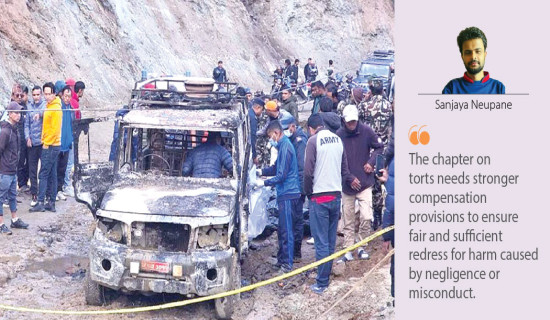
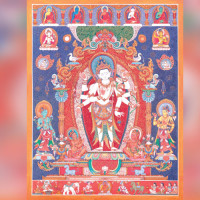
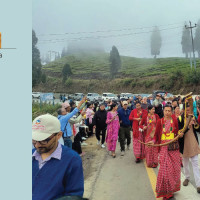



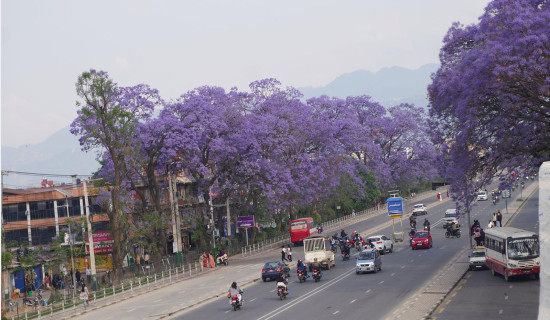


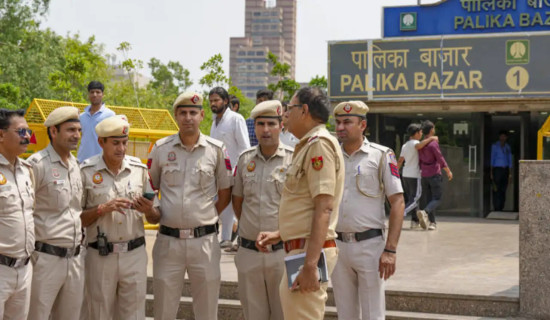


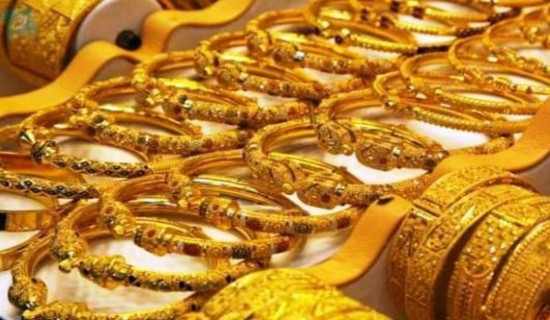
-original-thumb.jpg)